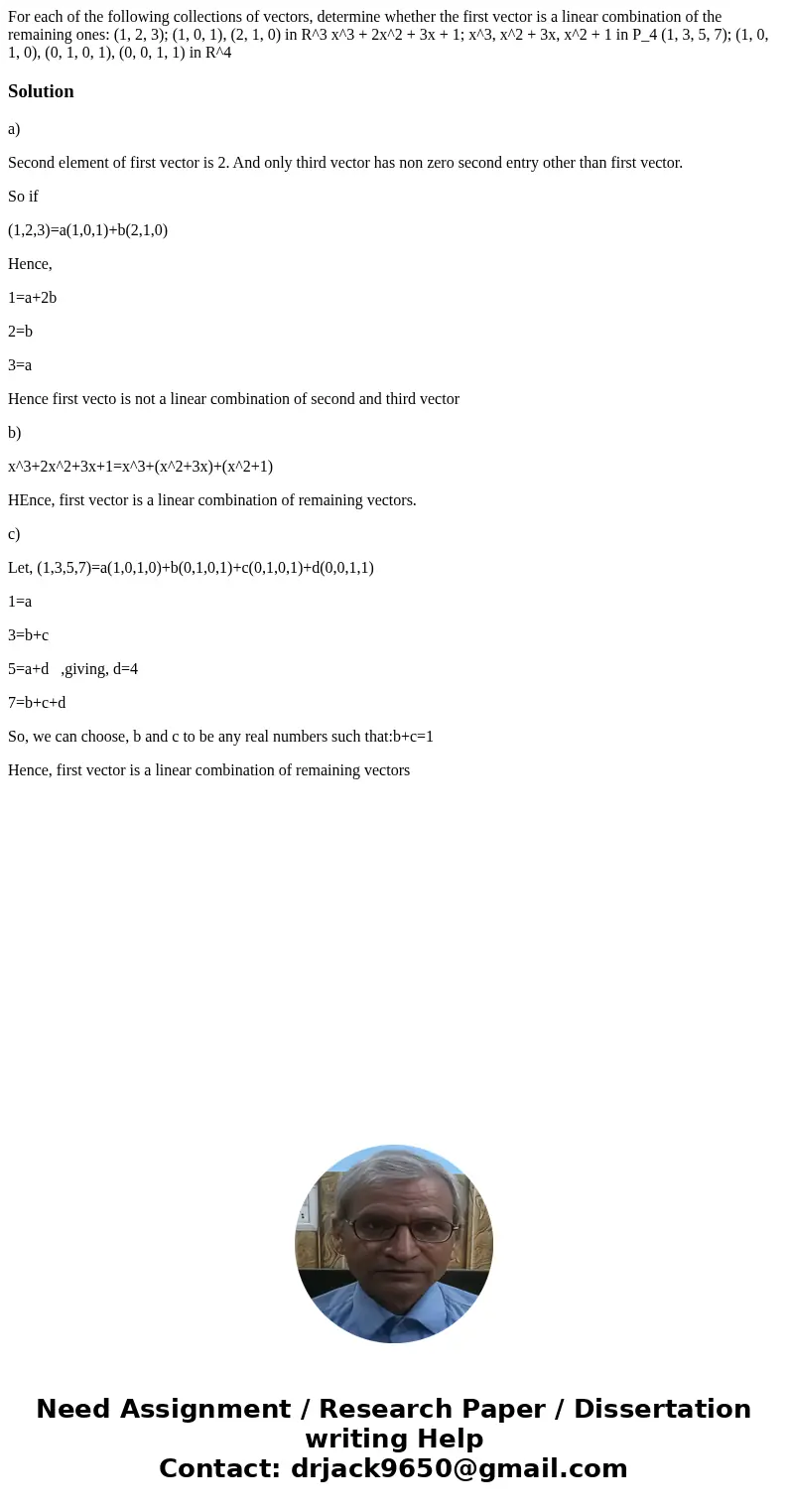For each of the following collections of vectors determine w
For each of the following collections of vectors, determine whether the first vector is a linear combination of the remaining ones: (1, 2, 3); (1, 0, 1), (2, 1, 0) in R^3 x^3 + 2x^2 + 3x + 1; x^3, x^2 + 3x, x^2 + 1 in P_4 (1, 3, 5, 7); (1, 0, 1, 0), (0, 1, 0, 1), (0, 0, 1, 1) in R^4
Solution
a)
Second element of first vector is 2. And only third vector has non zero second entry other than first vector.
So if
(1,2,3)=a(1,0,1)+b(2,1,0)
Hence,
1=a+2b
2=b
3=a
Hence first vecto is not a linear combination of second and third vector
b)
x^3+2x^2+3x+1=x^3+(x^2+3x)+(x^2+1)
HEnce, first vector is a linear combination of remaining vectors.
c)
Let, (1,3,5,7)=a(1,0,1,0)+b(0,1,0,1)+c(0,1,0,1)+d(0,0,1,1)
1=a
3=b+c
5=a+d ,giving, d=4
7=b+c+d
So, we can choose, b and c to be any real numbers such that:b+c=1
Hence, first vector is a linear combination of remaining vectors

 Homework Sourse
Homework Sourse